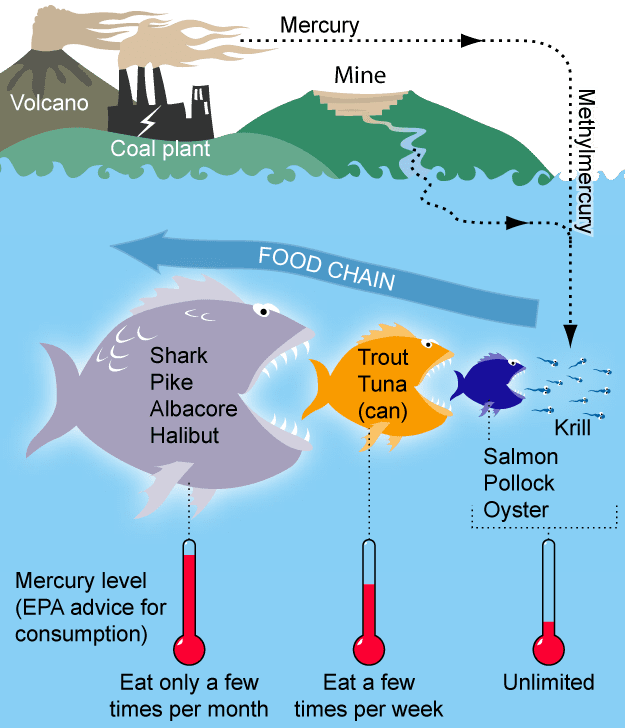FDA: Seafood Will Not Have Labels for Mercury
Imagine shopping for seafood at a fish counter and seeing a display on the mercury levels contained within the varieties of fish sold. In an ideal world, that disclosure would be transparent for pregnant women and for all consumers, so they could eat the recommended two to three servings of fish a week and avoid consuming excess levels of the neurotoxin.
But that will not happen.
Stopping just short of that, the Food and Drug Administration plans to update its general guidance on the amount of the metal in varieties of seafood. This comes after pressure from consumer groups who complained the FDA was not acting fast enough to educate the public on the dangers of mercury in seafood.
The agency is caught in a bind – it wants to up its recommendation for fish consumption while at the same time not offend the food industry.
It is suggested most people benefit from eating seafood because it contains omega-3 which is good for brains and hearts. For adults mercury accumulates but is not thought to have as much impact as on a small developing body and brain.
Fish can absorb mercury from streams and oceans and accumulate the neurotoxin in their body. Some fish tend to absorb more mercury than others, likely because of the waters they swim in.
This new draft guideline comes not just from the Food and Drug Administration but also the Environmental Protection Agency. It replaces the 2004 guidelines, which caps fish intake. The public will be asked to weigh in over the next 30 days.
The new guidelines will be similar to the 2010 Dietary Guidelines which suggested pregnant women consume eight to 12 ounces of seafood a week once or twice a week. Not just for pregnant women, the guidance also encourages children to consume two or three servings of fish weekly.
FDA Commissioner Margaret Hamburg says there will be no labels directly on the seafood, something consumer groups had long wanted. But the advisory will give information on mercury and those fish with the highest levels of omega-3 fatty acids to see which are best for developing brains.
Medpage reports on a survey that shows about three-quarters of pregnant women are consuming less than four ounces of fish a week.
Low in mercury fish include canned light tuna, tilapia, catfish, salmon, Pollock shrimp and cod.
Four fish are on the do-not- eat list including tilefish from the Gulf of Mexico, swordfish, shark and king mackerel. Also suspect are marlin and orange roughy.
Fish pulled from local waters are not monitored and should be limited to six ounces a week.
Albacore tuna in steaks or canned should also be limited to six ounces a week due to a high mercury count.
CISPA Petitions FDA
The Center for Science in the Public Interest (CSPI) petitioned the FDA three years ago to require labels on fish and that mercury levels be posted in supermarkets. Food Safety News reports the FDA never responded so CSPI filed a lawsuit in federal court last March to require an answer. Their complaint says hundreds of thousands of children are born in the U.S. every year with elevated mercury levels in their blood which can contribute to learning disabilities and lower IQs as well as impaired cognition. Of special concern is tuna served in school lunch programs.
The FDA failed to impose any regulations. Instead, CSPI has issued educational materials and reports on how to avoid mercury in seafood which consumers can access from their website.
As is often the case, the FDA becomes a black hole of inaction as it tries to weigh the concerns of consumers under pressure from industry. You simply cannot serve two masters.
[youtube_sc url=”http://youtu.be/3OIeEU29kEk”]
Share This



